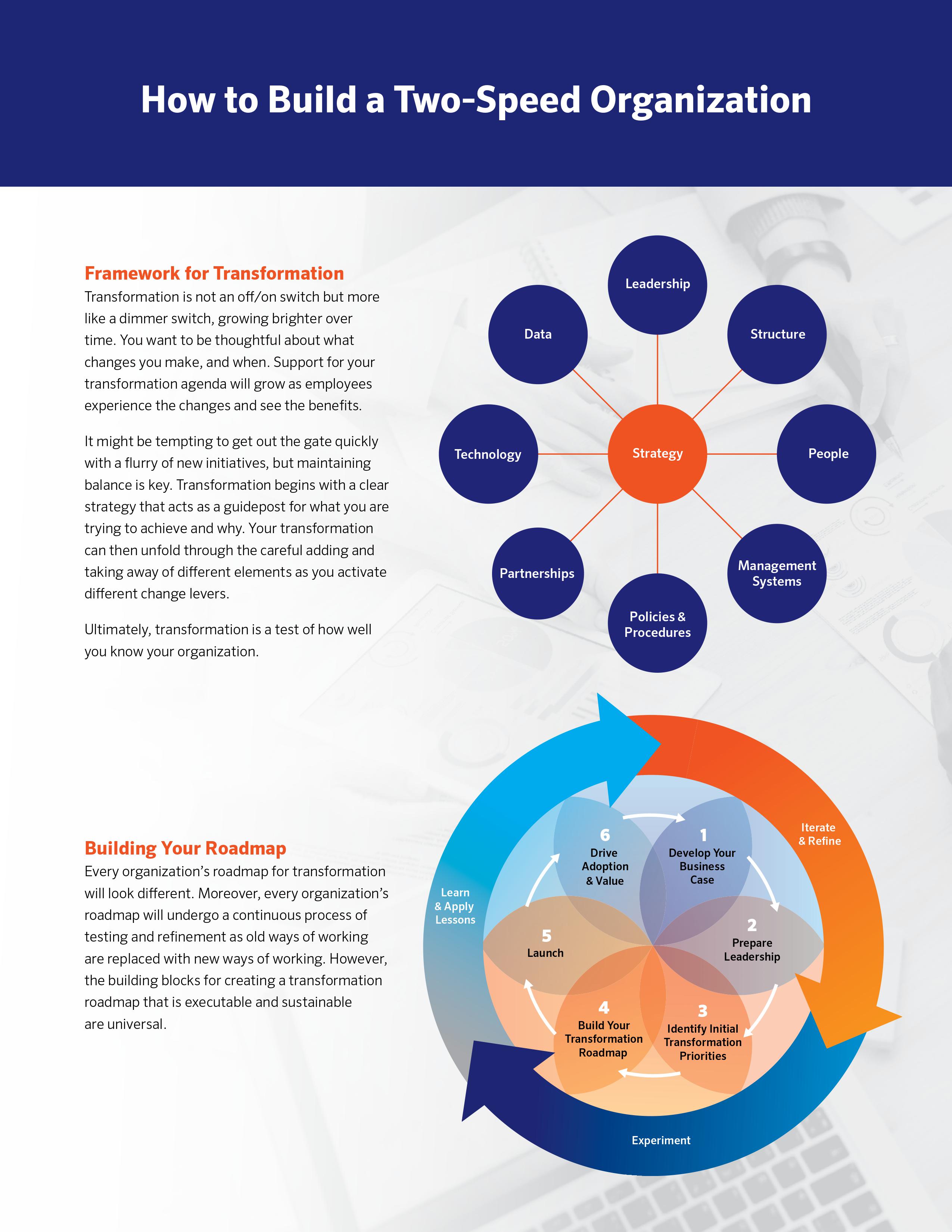09 Dec How to Build a Two-Speed Organization

Over the last several months I have had the privilege of working with two amazing consulting partners, Lory Block and Shelly Berlin, who run their own consulting practices, to explore how organizations can redefine their transformation agendas in a post-pandemic world. As a way to model the future of work, the three of us have collaborated to create a Field Guide to help organizations reflect on building a “Two-Speed Organization” to take on this challenging transformation work – this Field Guide will be released over the next few weeks but attached you will find a high level framework of the key levers to focus on as well as a roadmap for transformation.
As an introduction to our work, below are some initial perspectives from Lory Block to hopefully spark your thoughts about going on this transformation journey. If you would like to learn more about organizational transformation, please contact Peter Lee at pmlee@tekara.com
A Polycultural Practice for a Post-Pandemic World By Lory Block, Phd.
Covid-19, the digitization of work, climate change, and calls for social justice and reconciliation are challenging long held assumptions about life as we know it. This includes our assumptions about the nature of work, the needs of workers, and how we work together in a post-pandemic world.
One of the more obvious shifts I’ve seen over the last year is an increased focus on diversity, equity, and inclusion (DEI) in the workplace. While diversity initiatives are not new, there appears to be a growing appetite for real change – to make the shift from ticking the right boxes to fundamental cultural transformation.
But what does a fundamental cultural transformation really mean?
In the case of diversity, I believe it means making the shift away from strategies, programs and tools focused on compliance and risk mitigation and moving towards a polycultural practice. A polycultural practice is the product of a belief that diversity is a strategic asset that can and should be leveraged to create value.
The term ‘polycultural’ comes from the world of agriculture. It describes the practice of planting multiple crops in the same field at the same time. By doing so, the natural conditions of the ecosystem are replicated. This method of farming has been found to be more efficient as well as more resilient. While the initial investment to set up a polyculture farm is greater than that of monocultural farming, the long term benefits are superior.
Leaders can apply a similar practice in the workplace. Rather than simply looking to meet the diverse needs of different groups, leaders can focus on leveraging those differences in unique and innovative ways. Identity is fluid; categories and labels will continue to change over time, but if the focus is on bringing differences together around a shared vision, the long-term benefits will be considerable. A preoccupation with regulation and reporting will be supplanted by greater engagement, resilience, and innovation.
We need to move away from a defensive practice based on managing differences to a proactive practice that sees differences as an asset to be cultivated.



Sorry, the comment form is closed at this time.